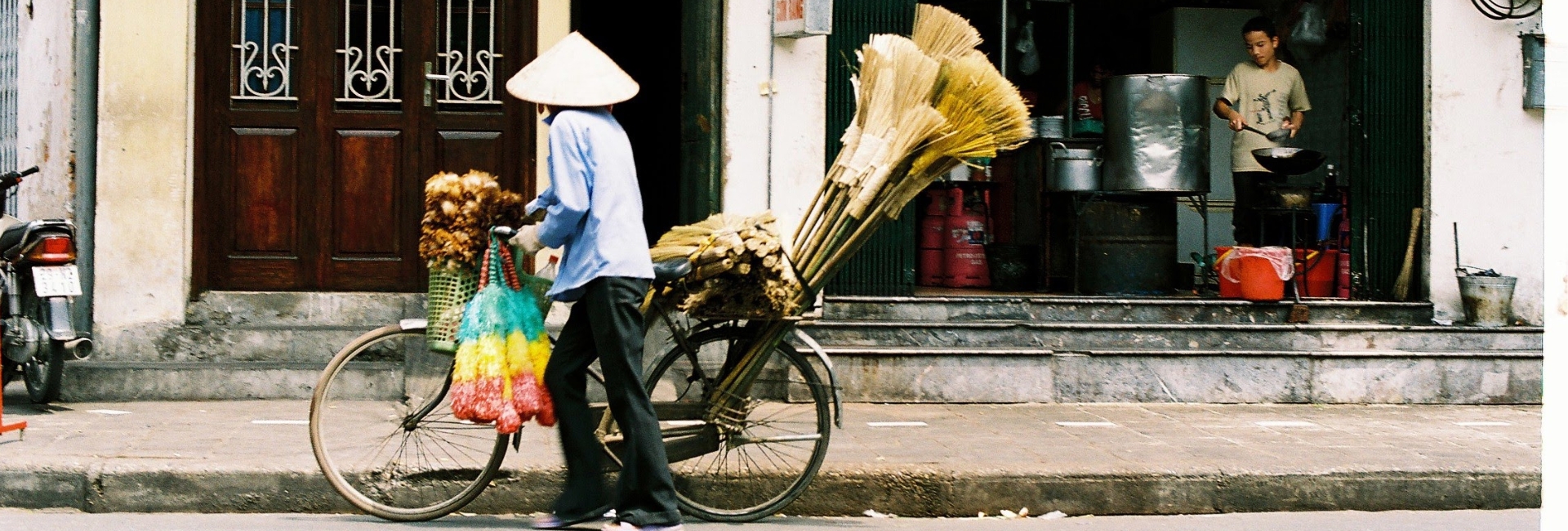It’s essential to prepare yourself with knowledge of electricity and power when planning Vietnam Travel Packages. As a traveler, you’ll need to know what kind of voltage and plug type to expect, as well as how to deal with power outages and other electrical issues that might arise during your trip. In this blog post, we’ll provide all the information you’ll need to prepare for electricity-related issues before your journey to Vietnam.
Vietnam Power Plug and Voltage
The voltage used in Vietnam is 220V with a frequency is 50Hz, and the plug type used is Type A/C (the most common) or Type A. Power plug Type A/C is also common and used in all Indochina Countries, such as Laos, Thailand, Cambodia, and Myanmar. Type A/C plugs are two-pronged, flat, and non-grounded, while Type A with two flat parallel pins. If your devices do not use this type of plug, you will need an adapter for them to work in Vietnam.
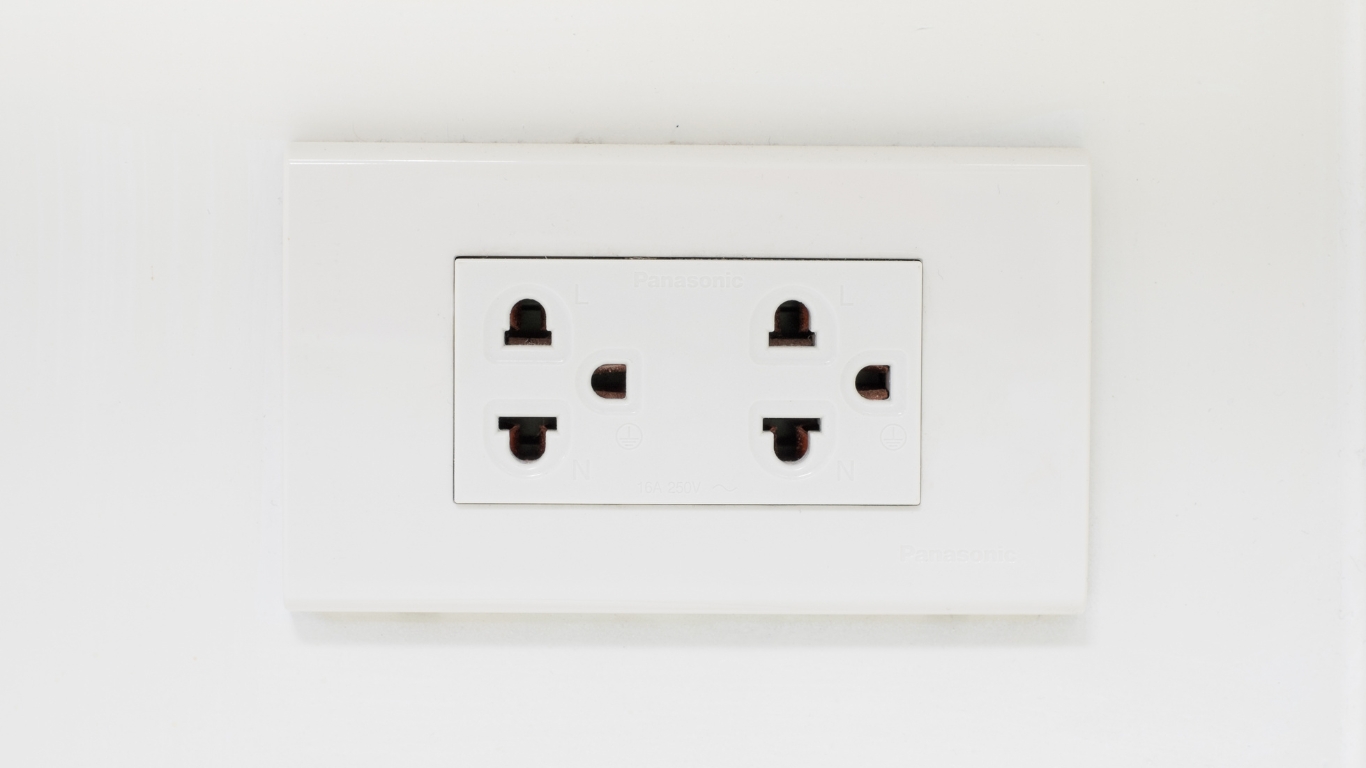
Travelers from countries such as the US, Canada, and Mexico may not need an adapter to use their devices in Vietnam as they share the same plug type A as Vietnam. However, if you come from Australia, New Zealand, or Hong Kong, which uses type I, you’ll need an adapter before traveling to Vietnam. It’s important to note that some hotels in Vietnam may have a mix of plug types, so it’s always a good idea to bring an adapter, just in case.
Is there a power outage in Vietnam?
Power outages are not uncommon in electricity in Vietnam, especially during the summer months (often from June to August), when demand for electricity is high. The reasons for power outages in Vietnam can vary from maintenance work to natural disasters such as typhoons. In some rural areas, power outages can last for several hours or even days. In the cities, power outages are less common, but they can still happen.
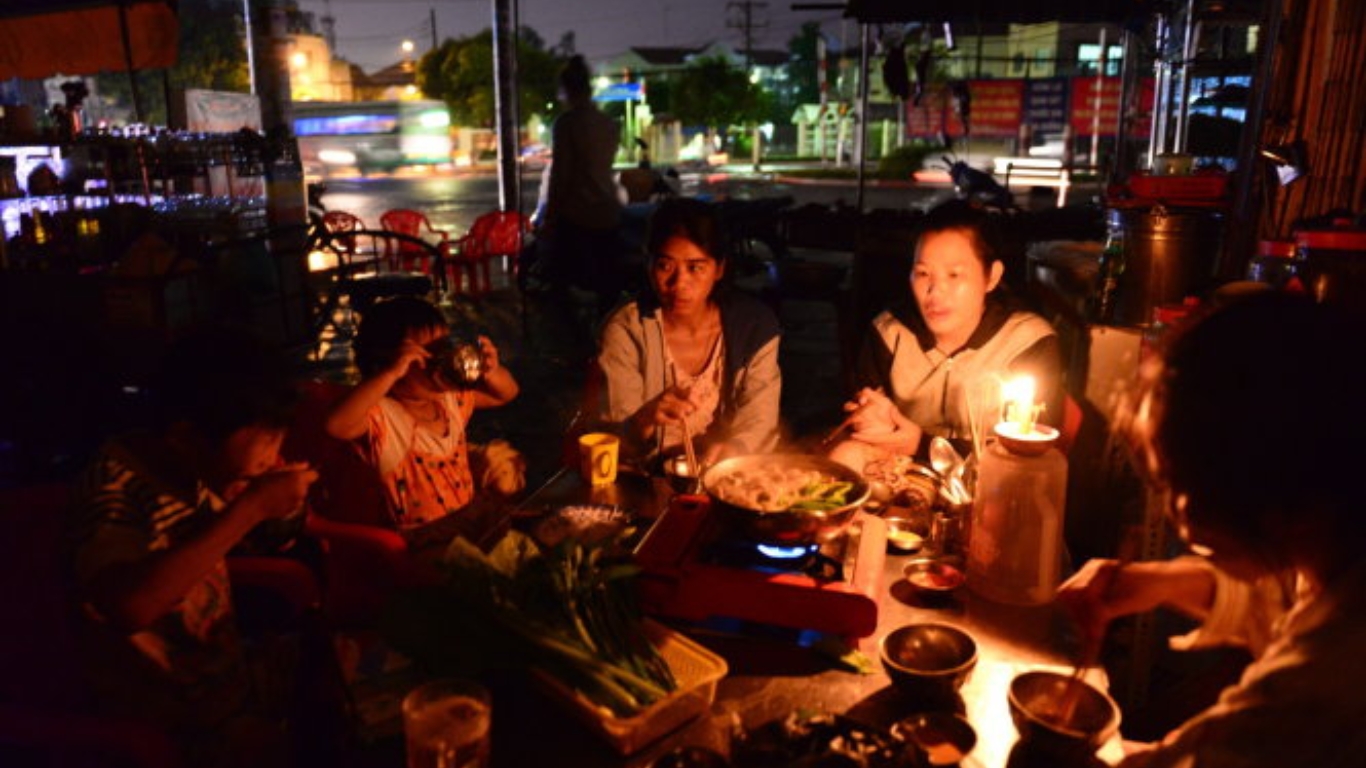
But don’t worry, most of Vietnam’s hotels or accommodations (especially in the city) always have a backup generator in case of a power outage. However, if you encounter a power outage during enjoy the journey, don’t panic. It’s always a good idea to bring a power bank or flashlight with you to be prepared.
From a positive point of view, you can totally enjoy this moment with locals. In the Vietnam countryside, when having a power outage, they usually come outside and chit and chat together while taking a deep breath to enjoy the fresh air till the electricity return. You can enjoy it to hear stories about their life or maybe “legend tales” that locals always passed on to each other with some snacks on hand.
Adapters vs. Converters, which one to bring to Vietnam?
It’s important to understand the difference between adapters and converters when traveling to Vietnam. An adapter simply allows your device’s plug to fit into the electrical outlet, while a converter changes the voltage from the outlet to match the voltage needed by your device.
If you’re traveling with devices that have a built-in voltage converter, such as laptops and smartphones, you will only need an adapter to use them in Vietnam. However, if you’re traveling with devices that do not have a built-in voltage converter, such as hair dryers and curling irons, you will need a converter in addition to an adapter.
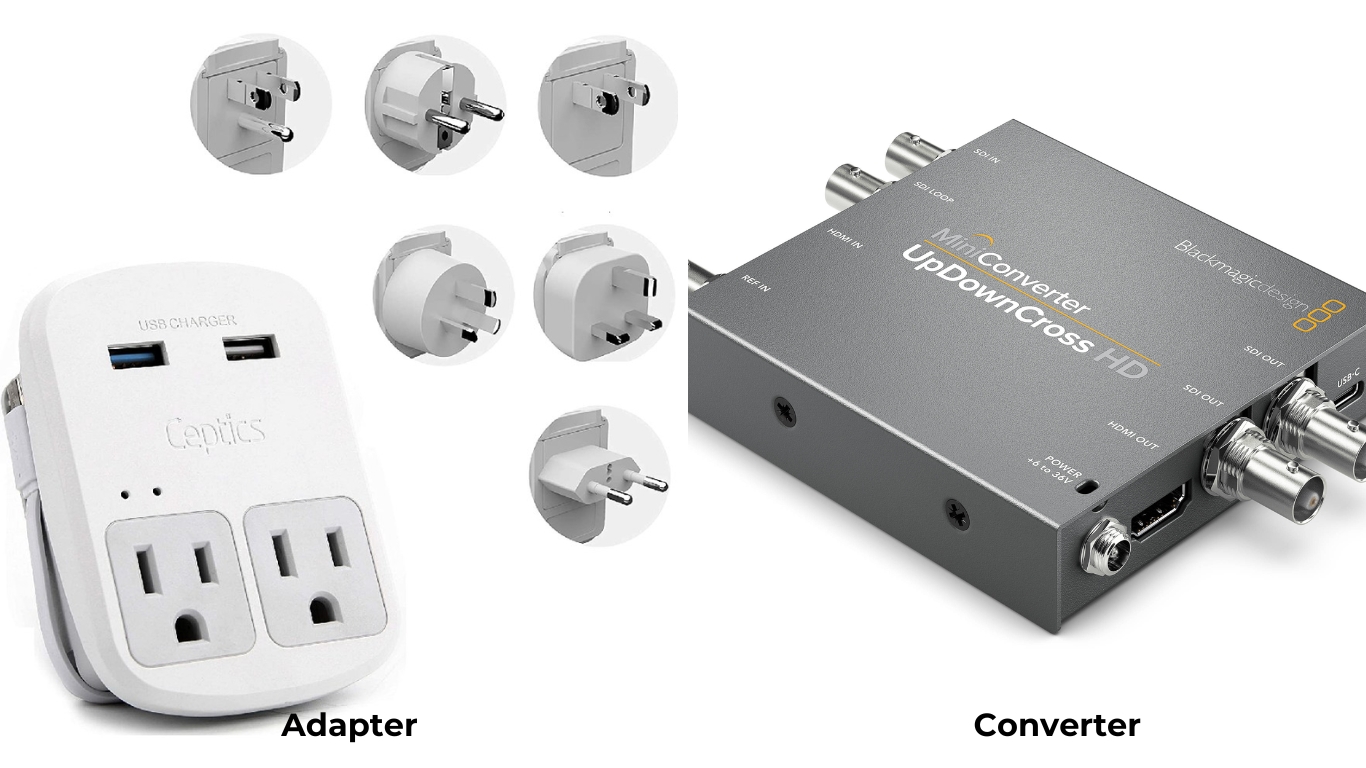
Before traveling to Vietnam, it’s important to check the voltage requirements of your electronic devices. The voltage used in Vietnam is 220V, which is different from the voltage used in some other countries. If your devices have voltage requirements that are lower or higher than Vietnam’s voltage, you may need a voltage converter to avoid damage to your devices. It’s also important to note that voltage converters do not change the frequency of the electrical current, so if your device requires a specific frequency, such as 60Hz, used in the US, you may need a frequency converter as well. By taking these precautions, you can ensure that your electronic devices work safely and properly during your trip to Vietnam.
You can easily purchase adapters and converters in Vietnam at electronic stores or even at some hotels. But not every Vietnam electronic store and hotel is available for them, so we recommend you should bring them from home to ensure you have the correct ones.
Vietnam Street Wire
In Vietnam, street wires or overhead power lines are a common sight in many cities and towns. They are used to transmit electricity from power stations to homes and businesses and are often strung between utility poles above the streets. In some cases, these wires may also be strung across buildings or other structures.
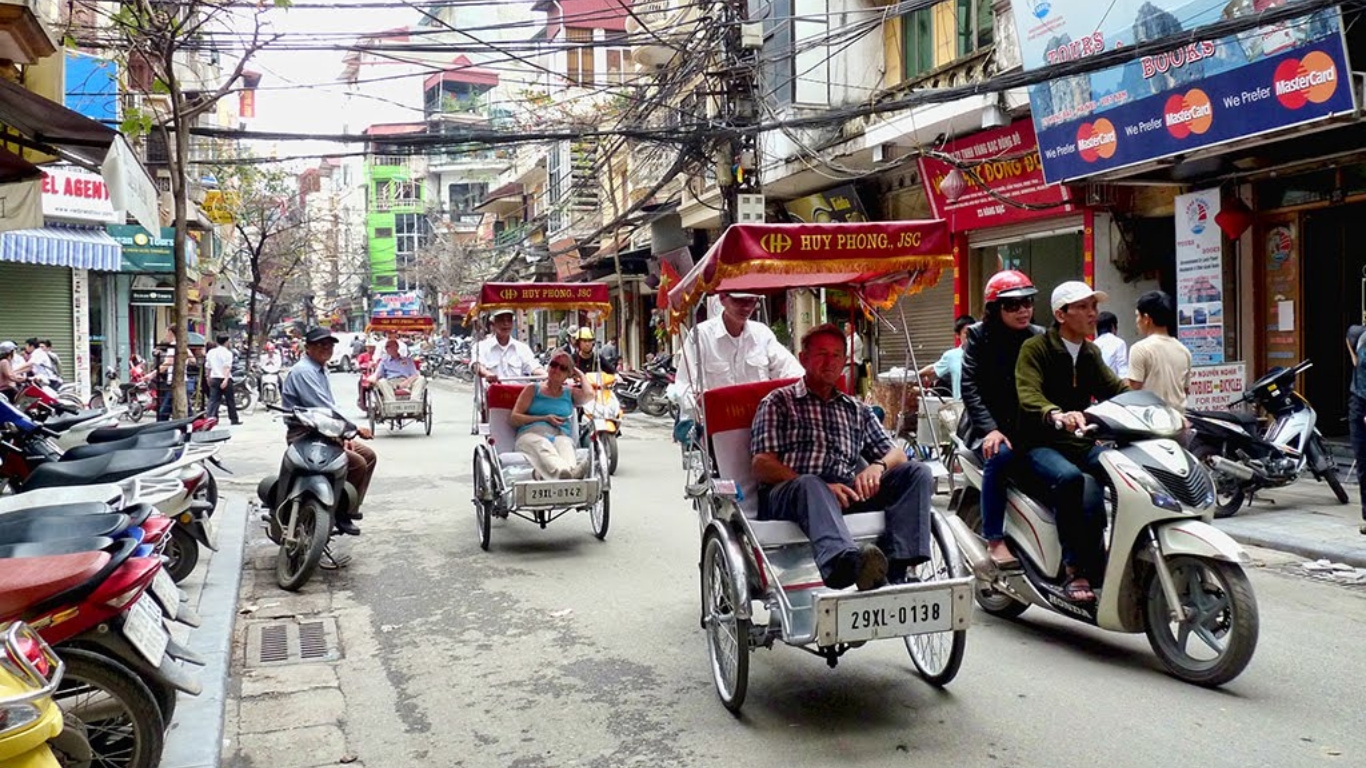
Street Wires with colorful local houses are a familiar and signature image of Vietnam. However, it still can be a safety risk if not maintained. Authorities work to inspect and repair wires regularly to minimize accidents. Still, it’s important to be aware of potential hazards, avoid contact with wires, report damage, and follow safety guidelines when near overhead wires.
Safety Electric Tips
When traveling to Vietnam, it’s important to take some safety precautions when using electronic devices to avoid accidents and ensure a safe and enjoyable trip. Here are some safety tips to keep in mind:
- Use surge protectors to protect your devices from voltage spikes.
- When possible, use grounded outlets to reduce the risk of electrical shocks. If you’re not sure if an outlet is grounded, ask your hotel or accommodation staff.
- Avoid using electronics near water.
- Remember to unplug devices when not in use.
- Use power strips or extension cords with built-in surge protectors to avoid overloading outlets.
- Bring the appropriate adapters and converters for your electronic devices to avoid damaging them or causing a fire hazard.
- Don’t touch electrical outlets or switches with wet hands
- Be Careful when going past Vietnam Street wires
- If you forgot to bring the power adapter from home, you could buy another one in Vietnam with a price of around US $2, less than the US $3
By understanding the basics of electricity in Vietnam, you’ll be better prepared for your journey and can avoid any unpleasant surprises. Remember to bring the appropriate adapters and converters for your devices, and take safety precautions when dealing with electricity. With these tips in mind, the Indochina Voyages Team hopes you will have unforgettable memories in Vietnam. Don’t hesitate to tell us all about your Vietnam travel stories!
Find more tips and information for a memorable Vietnam journey: How to Plan a Trip to Vietnam? Insider Tips for an Authentic Experience
Phuong Thuy – From Indochina Voyages Team
For your Travel List:

